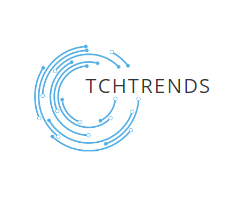Buying health insurance is crucial for everyone, but people are easily demotivated by the premium payments. Additionally, navigating finances such as savings and investments becomes tough.
To motivate people to buy their financial security, the government designed benefits pertaining to health insurance policies. People often jump on opportunities to grab tax benefits to save their hard-earned income, and buying a medical policy can do that for you.
A medical policy offers numerous benefits, one of which is related to the taxes you pay. Whether you purchase a standard Mediclaim policy or family health insurance, you receive these tax benefits. This guide will help you understand this taxing system and its details.
Understanding Health Insurance Tax Saving Benefits u/s 80D
Section 80D of the Income Tax states that an individual or Hindu Undivided Family are allowed to claim deductions on the taxable income due to the insurance premium payments. The amount of premium, up to an extent, is deducted from your total taxable income.
This section provides an opportunity to reduce the amount of tax you pay to the government while ensuring financial protection against medical expenses.
Eligibility to Avail 80D Tax Savings Benefits
In order to save tax with health insurance and be eligible for tax benefits u/s 80D, you have to fit the criteria given below:
- An individual with taxable income.
- A member of the Hindu Undivided Family with taxable income.
- Health insurance premiums should be paid for by oneself, parents, dependent children and spouses.
- Payments for treatments should be made through non-cash modes: cheques, drafts, credit cards and electronic payments.
- Payments for preventative health check-ups can be cash payments.
Note that you do not receive any deductions for medical insurance under 80C. The tax deductions for health insurance are only eligible u/s 80D.
Tax Saving Medical insurance: Deduction Limits u/s 80D for Types of Payments
Different types of treatments and payments are received differently, according to the Section 80D.
● Preventative Health Checkups
Preventative health checkups refer to doctor visits for regular health checkups. These visits help with early diagnosis of one’s condition, illness or disease. This helps reduce long-term healthcare costs and is promoted by insurance companies as well as the Income Tax Act.
Under section 80D, one can claim up to ₹5,000 for expenses. You can claim this deduction for the expenses you made for your spouse, children and parents. These deductions form a part of the overall limit of ₹25,000, or more if one of the insured is a senior citizen (more about this later.)
Unlike other treatments, where cash payment is not considered for deductions, preventative health checkup allows cash payments.
● Medical Policy For Parents
As a responsible member of a family, one indulges in policies like family health insurance to safeguard their loved ones, especially their parents. If your parents are below 60 years of age, you can claim 80D tax savings with health insurance up to ₹25,000.
In addition to this, you claim up to ₹25,000 deductions on treatment costs for your parents if they are below the age of 60 years.
● Senior Citizens Parents Above 60 Years
If your parents are above the age of 60 years, the deduction limit increases significantly. You can claim deductions of up to ₹50,000 per year on the health insurance premium payments. This will be considered over and above the ₹25,000 or ₹50,000 deductions you can claim for premiums paid for your or your family’s health insurance.
● Senior Citizen Parents Above 80 Years
If your parents are above the age of 80 years, their health insurance premium is naturally going to go up. In order to save yourself from such high amounts of premium payments, you can avail of these tax deductions under section 80D.
You can claim up to ₹50,000 of deduction for treatment payments for your parents who are above 80 years old. This amount can be the cost of their preventive health checkup, treatments and overall medical expenses.
● For Uninsured Parents
If your parents are uninsured, you can avail of deductions of up to ₹25,000 deductions (below 60 years) and ₹50,000 (above 60 years). This clause of section 80D ensures that these deductions do n0t only benefit the people with health insurance policies.
Note that these deductions are limited to section 80D of the Income Tax Act, and you receive no deduction for health insurance under 80C. Many taxpayers tend to mistake these two sections of the Income Tax Act.
Ending Notes
Health insurance is a monetary instrument that not only safeguards you financially but saves you a lot of tax money. In order to maximise these tax benefits, you need to plan your premium payments well, include family member policies, choose long-term policies, document all the payments and consult a professional.
Save on taxes and spend on safety!

